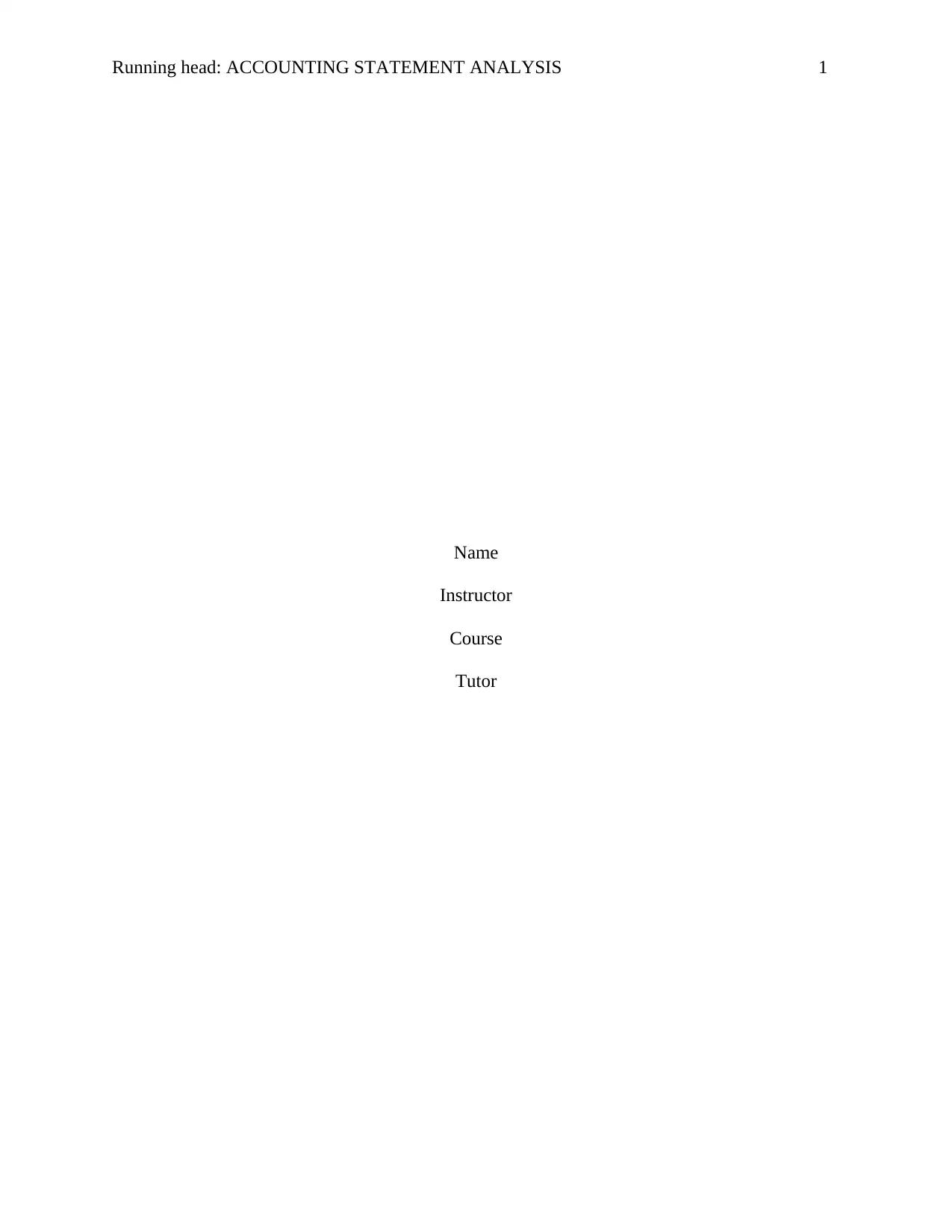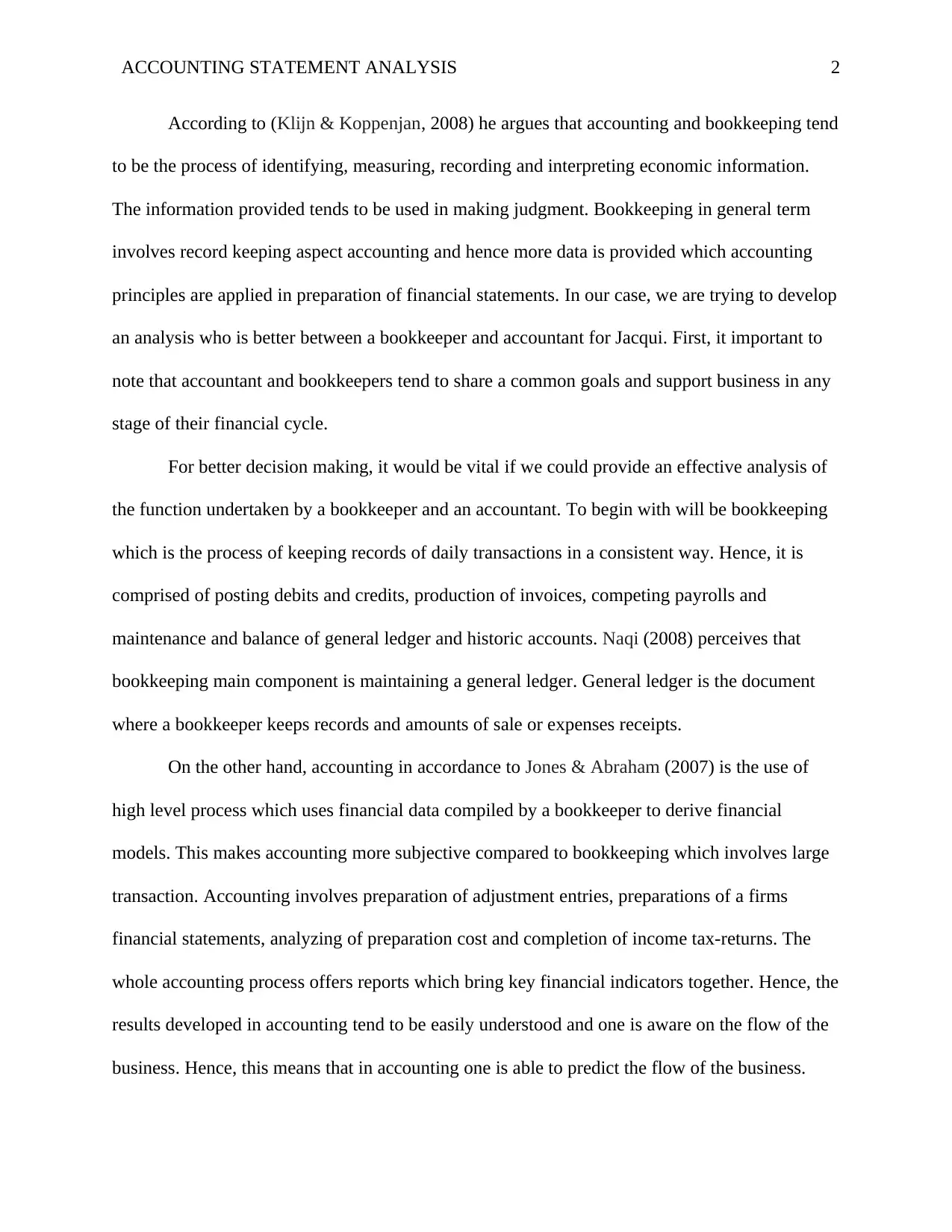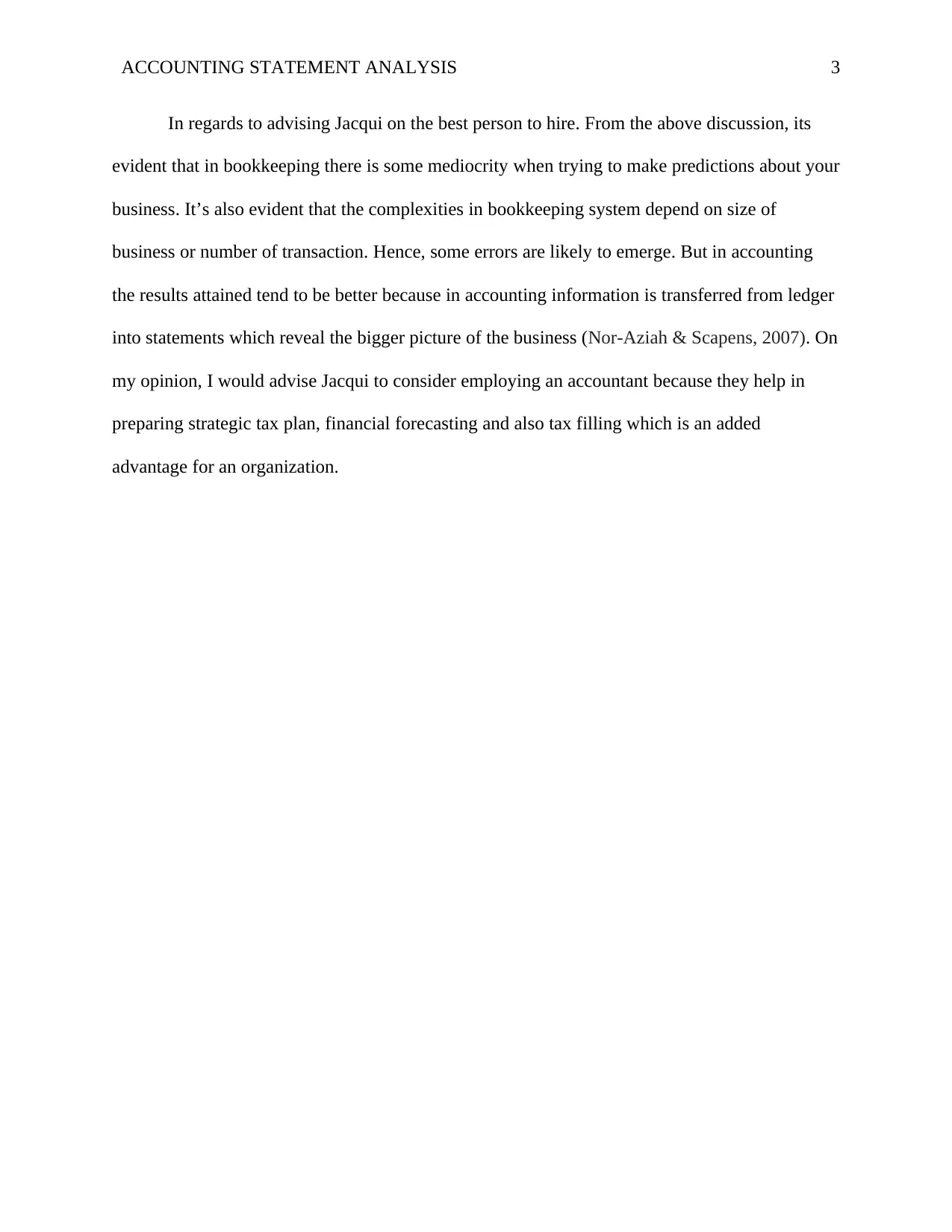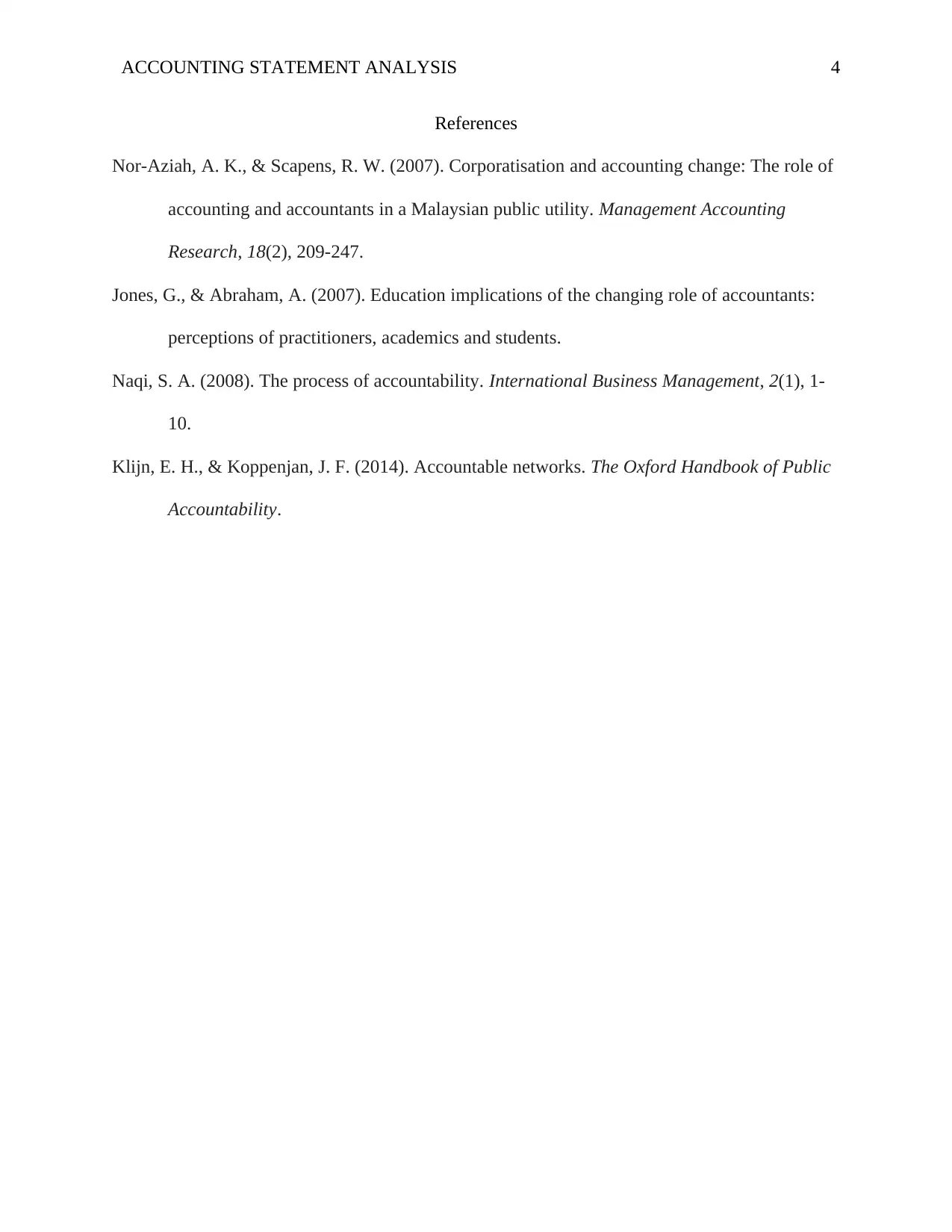Comparative Analysis: Hiring an Accountant or Bookkeeper for Jacqui
VerifiedAdded on 2023/06/09
|4
|635
|244
Essay
AI Summary
This essay analyzes the roles of bookkeepers and accountants to advise Jacqui on the best professional to hire for her business needs. It begins by defining bookkeeping as the process of recording daily transactions and maintaining a general ledger, while accounting involves higher-level analysis using financial data compiled by a bookkeeper to derive financial models. The essay highlights that bookkeeping focuses on data entry and record-keeping, whereas accounting involves preparing financial statements, analyzing costs, and completing tax returns. The analysis suggests that while bookkeeping is essential for maintaining financial records, accounting offers a more comprehensive view of the business's financial health, enabling better decision-making and strategic tax planning. Ultimately, the essay recommends that Jacqui employ an accountant due to their ability to provide strategic tax plans, financial forecasting, and tax filing services, offering a greater advantage for her organization.
1 out of 4










![[object Object]](/_next/static/media/star-bottom.7253800d.svg)